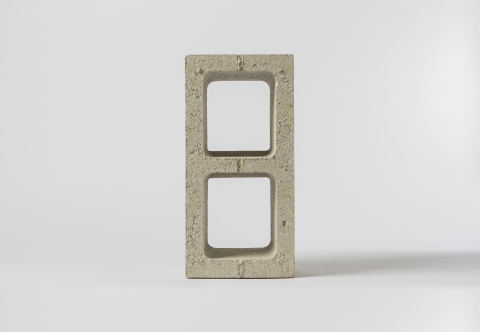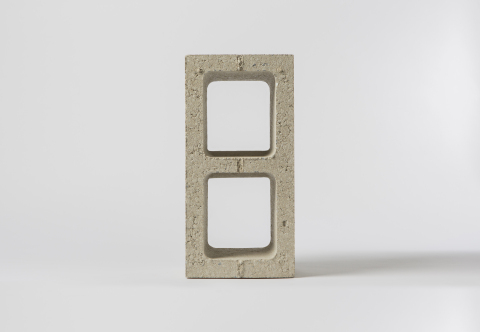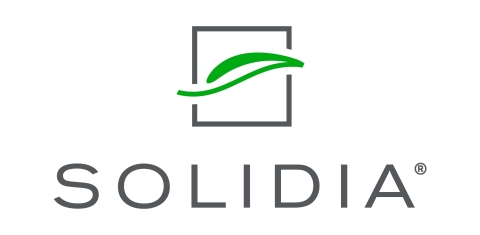PISCATAWAY, N.J. & SAN FRANCISCO--(BUSINESS WIRE)--Cement and concrete technology company Solidia Technologies® has partnered with Uncountable to develop a new data analysis platform that will expedite R&D and applications of Solidia’s next-generation, sustainable concrete manufacturing process.
Employing data science, machine learning and Artificial Intelligence (AI), Uncountable’s web platform and service enables Solidia and its customers to improve production and products by trialing myriad concrete formulations without years of experimentation. It serves as a bridge between R&D at Solidia and optimization at customer facilities during pilot and commercial phases.
Solidia’s technology lowers the carbon footprint of cement and concrete up to 70% based on a new chemistry for cement – the glue that binds concrete. Manufactured at lower temperatures than ordinary Portland cement (OPC), Solidia Cement™ reduces carbon emissions at the cement kiln. Solidia Concrete™ is then strengthened through the permanent consumption of CO2 (instead of water) through an Intelligent CO2 Curing process that is monitored by Solidia and allows data collection. Uncountable’s platform speeds the manipulation and analysis of that data, helping Solidia’s R&D team cut development time, reduce testing iterations, and identify enhanced manufacturing processes and concrete formulations faster.
“Because our chemistry is simple, we can model, measure and predict the manufacturing process and quantify and prove all performance and impact improvements,” said Solidia CEO Tom Schuler. “Uncountable helps us accelerate product development by dramatically speeding data analysis, helping us predict iterations and move much more quickly.”
Using the same raw materials and equipment of concrete plants, Solidia tailors its technology to customers’ existing formulations and manufacturing processes. Solidia is working with Uncountable to expedite evaluation of the broad space of chemistries available for concrete formulations. “Never before has the industry had eyes inside the curing chamber or a means of rapid-fire testing that can expedite production upgrades and efficiencies, new recipes, and improved performance in concrete,” explained Schuler.
“Uncountable’s R&D and optimization tools accelerate development of the most robust process for manufacturing Solidia Concrete,” explained Uncountable Founder Noel Hollingsworth. “Powered by AI algorithms, our platform mitigates the need for tedious, manual tweaking of individual ingredients. Complicated development processes that would involve tens or hundreds of experiments are now conducted by Solidia in half the time utilizing advanced machine learning models.”
Data from Solidia’s curing processes serve as the backbone for Intelligent Curing and formulation. “We’re excited to be working with Uncountable, spearheading the data revolution in cement and concrete, bringing sustainable solutions and process optimization faster to a global industry,” said Schuler.
About Solidia Technologies®
Based in Piscataway, N.J. (USA), Solidia Technologies® makes it easy and profitable to use CO2 to manufacture superior, sustainable building materials. Solidia’s patented reduce the overall carbon footprint of cement in concrete up to 70%. Each year, Solidia can eliminate at least 1.5 Gt of CO₂, save 3 trillion liters of fresh water, reduce cement industry energy consumption by 67 Mt of coal, and eliminate 100 Mt of concrete waste landfill. Solidia’s investors include Kleiner Perkins, Bright Capital, BASF, BP, LafargeHolcim, Total Energy Ventures, Oil and Gas Climate Initiative (OGCI) Climate Investments, Air Liquide, Bill Joy and other private investors. Follow Solidia Technologies at www.solidiatech.com and on LinkedIn, YouTube, Instagram and Twitter.
About Uncountable
Headquartered in San Francisco, Uncountable helps drive innovation by accelerating R&D across the materials and chemicals industry. Leveraging advanced artificial intelligence techniques, Uncountable augments the traditional R&D approach, helping cut development time, reduce testing iterations, and find innovative new products faster, getting better material and chemical products to the market in half the time.






